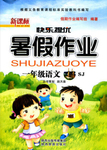题目内容
词形变化。
1.Don't spend too much time (sit)in front of the computer.
2.Our favourite festival is (child)Day.
3.How many baskerball (play)are there in a match?
4.Mike goes swimming (one) a week.
5.Tom, (not be) late for school again.
6.Mike with his parents (watch) TV in the evening.
7.Let Tom (fly) kites after school.
8.The boy (call) Jim is her son.
9.Please get me some (information) about the Great Wall.
10.Our English teacher is (help) to us.
2.Our favourite festival is (child)Day.
3.How many baskerball (play)are there in a match?
4.Mike goes swimming (one) a week.
5.Tom, (not be) late for school again.
6.Mike with his parents (watch) TV in the evening.
7.Let Tom (fly) kites after school.
8.The boy (call) Jim is her son.
9.Please get me some (information) about the Great Wall.
10.Our English teacher is (help) to us.
1 sitting 2 Children's 3 players 4 once 5 don't be
6 watches 7 fly 8 called 9 information 10 helpful
6 watches 7 fly 8 called 9 information 10 helpful

练习册系列答案
 新课标快乐提优暑假作业陕西旅游出版社系列答案
新课标快乐提优暑假作业陕西旅游出版社系列答案
相关题目